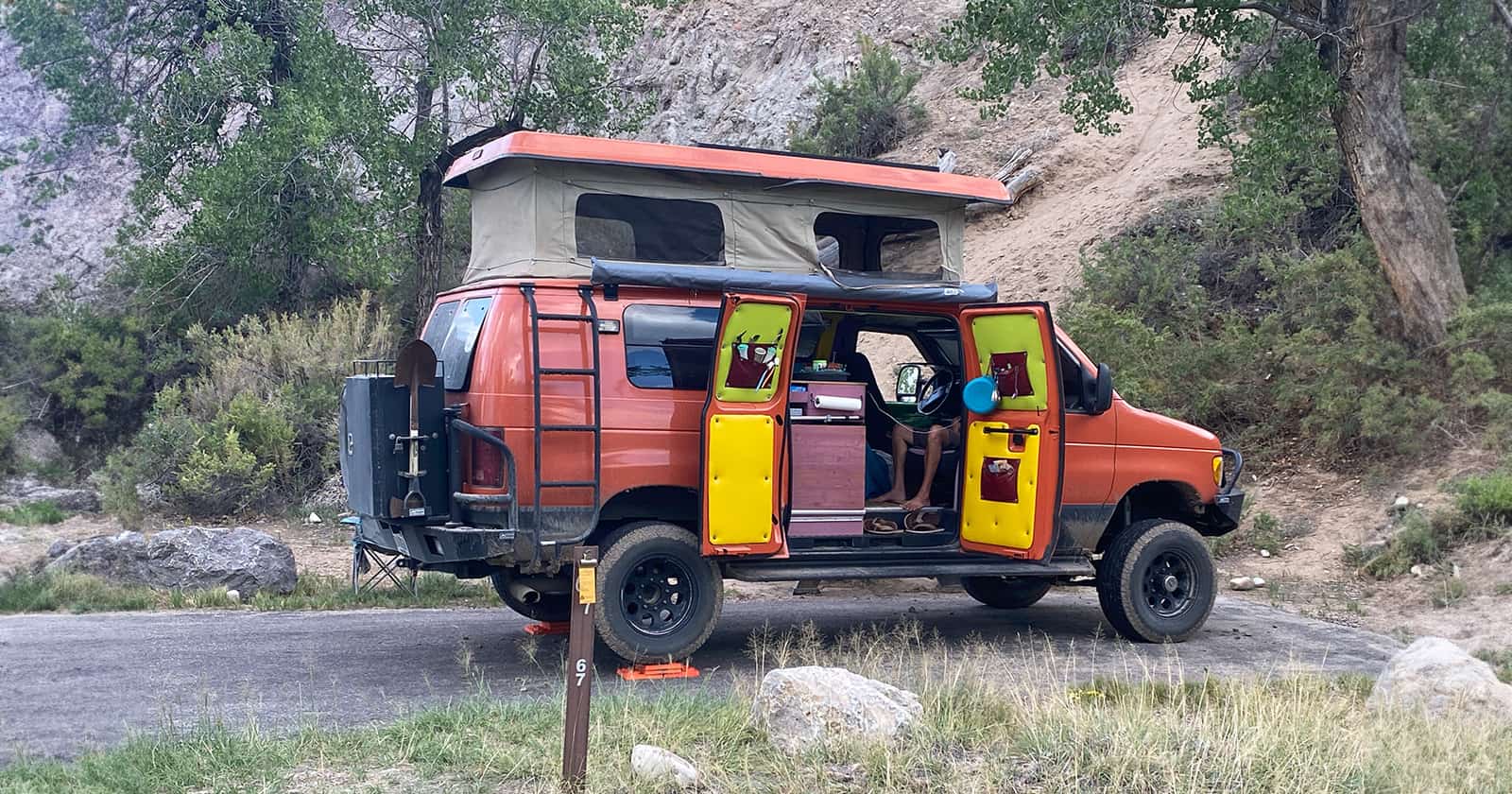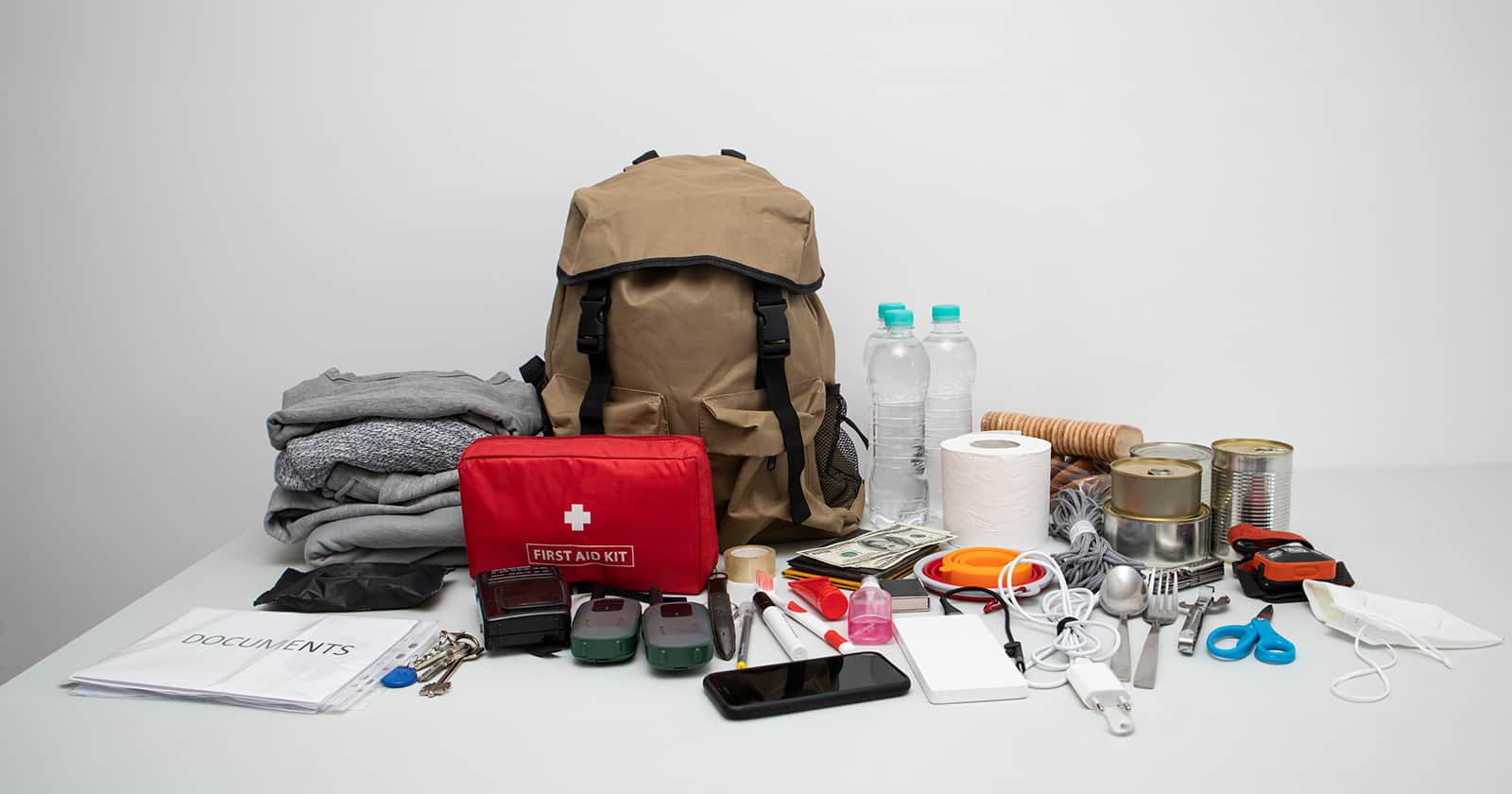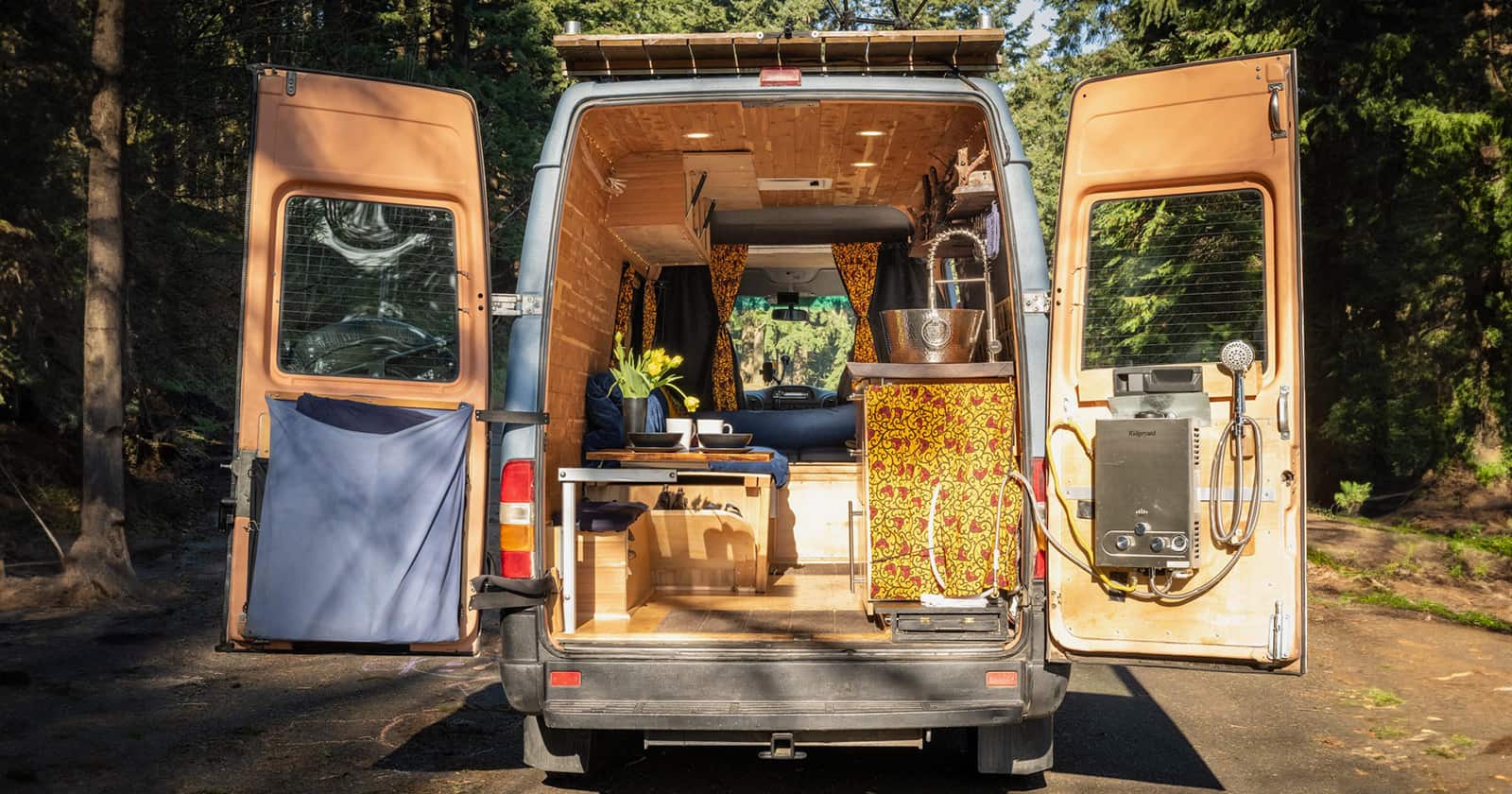Find The Right Water Storage Option For You
When you travel in a van, you need to cut down your possessions to the bare essentials. You should always keep a few things on hand, especially if you want to do off-grid van camping. It’s essential to always have a stock of clean water in your van, but sometimes it’s hard to store it properly.
There are several things you should do when bringing water to your van. First, choose high-quality containers that won’t leak or break down. Next, find a good place to keep your water from being exposed to extremely high or low temperatures. Finally, bring filters or purification methods to treat the water you find in nature.
Water is essential for life and makes day-to-day tasks much more accessible. It would be hard to enjoy off-grid van camping if you could never wash your hands, cook, or clean. Just think ahead and prepare a safe stockpile of fresh water. We’ll talk about how to do this in the sections below.
Choose Proper Storage Containers
The first thing you need to do is choose the containers you’ll use for your water storage. We’re all familiar with the plastic water bottles you can buy in bulk at any grocery store. Although these are cheap and convenient, they’re not always the best for off-grid van camping.
These bottles are made from thin plastic, which is easy to break once the road gets rough. Plastic also absorbs bad tastes and smells and will leach the plastic-y flavor into the water. Although this may not be dangerous, it certainly isn’t pleasant.
These bottles also create a lot of plastic waste, which most van lifers want to avoid. They’re so flimsy that it isn’t practical to reuse them very often. So even though it may be cheap to buy a few packs of water bottles, there are lots of alternatives you may want to consider. They all have pros and cons, so make your choice carefully!
Thick Plastic Containers
Even though thin plastic bottles are less than ideal, that doesn’t mean you have to avoid this material altogether! Many plastic water containers are thick enough to prevent taste contamination and hardy enough to withstand the rough and tumble lifestyle of off-grid van camping. Plus, if you get a model with a built-in spigot, it’s easy to pour out only as much water as you need. Look for BPA-free plastic when searching for suitable long-term storage containers made from plastic.
The potential downside of this option is that all your water will be in one place, so if it starts to go bad, all of it will be ruined. These containers are also a bit bulky, so finding a good place for them in your van can be challenging.
Canned Water
Canned water is a good solution to keep your water safe and prevent outside odors and tastes from seeping in. This storage solution is also separated into portions, so you can spread it throughout your van floor plan if necessary.
The downside is that these cans are hard to open, and the metal containers are a bit heavier. You also cannot refill them once they’re open, so you’ll have to deal with a lot of waste. If the water inside does freeze, it can also burst, creating a huge mess.
Boxed Water
Boxed water is similar to canned water in most respects, but the packaging is a bit lighter, and you won’t need to worry as much about freezing temperatures. However, most boxed water is flimsy compared to other storage methods. It could rip or split and won’t withstand pressure without bending or breaking.
Bagged Water
Bagged water is often used in emergency storage situations. Most bags are designed to be strong enough to avoid tearing, but this is always a risk. Some types of bagged water can be refilled, making this a good option for those who want to cut back on their waste.
It can be unwieldy and awkward to handle these bags, though. A bag of water is naturally floppy, so it can be hard to position them properly and keep them secured.
Glass Containers
If you want to avoid contamination, glass containers are your best bet. This material is non-porous, so it will keep the water fresh for long periods. You can also buy a wide variety of containers because there are many shapes and sizes of glass jars. You can also clean and refill them as many times as you want.
The downside of this material is obvious: Glass breaks. While enjoying off-grid van camping, you may travel over rough roads. If your jars knock against each other or run into other things, they can easily crack and spill. This creates a dangerous situation because you may not see the glass shards until too late.
Stainless Steel Water Bottles
Finally, you should think about using stainless steel bottles to store your water. Stainless steel prevents contamination and is hard to damage. This makes it the safest solution, but unfortunately, it’s also the most expensive. You’ll need to buy many bottles to pack a good amount of water on the road.
Regardless of your storage method, bringing a few stainless steel bottles for daily use is a good idea.
Pick a Good Storage Spot Within Your Van
Choosing a suitable container is essential, but you must set up a good place within your van to keep your stockpile. There isn’t usually a lot of free space within a van floor plan, so this can be tricky.
Although you can designate a specific place to keep a large freshwater tank, you can also spread out small containers throughout the vehicle. For instance, you might keep water inside your spare tire, glove box, or seat. Don’t leave any cupholders empty!
Ensure that the place where you keep your water isn’t close to any cleaning products, chemicals, or vehicular fluids. It’s helpful to keep your water inside a cooler to remain insulated and protect against odors that might affect the taste.
Rotate or Replace the Water Every 6 Months
Even if water doesn’t technically expire, it can become stale and gross if you leave it for too long. This is why it’s important to rotate your water storage regularly. This will ensure that you drink the water from oldest to newest and ensure that none of it sits unused for too long.
The general guideline is to use or replace your water every six months. Clean and sanitize your storage containers every time you empty one out so you can start with a clean slate.
Bring a Filter/Purification System
Finally, it’s a good idea to have a backup plan if you run out of water during your off-grid van camping excursion. You might have to rely on nearby sources of freshwater until you can restock your supplies.
In these situations, it’s wise to have a reliable filter or water purification equipment. There are tons of great filters on the market that can purify the water from rain and rivers. In addition, you can add some purification tablets to your emergency supplies if you need to treat water.
Good purification options include:
- Boiling water for 10-20 minutes
- Tiny amounts of liquid bleach (4-5 drops per gallon)
- Iodine or Halazone tablets
- No Dirty Water RX and RX+ systems
Related Articles:
- A Field Guide to Finding Safe Water on the Road
- How to Find Free Camping and Boondocking in Canada
- What Size Portable Solar Panel Do I Need For My Van?




2003, we built our ExpeditionVehicle with no yuge tank(s).
Instead, we use stainless-steel five-gallon retired Pepsi kegs.
Our standard load is seven, for thirty-five gallons.
Our system is modular, so we can easily add a dozen more kegs in the rig.
.
In the toy-hauler we converted from a similar commercial chassis, we can carry a couple-three dozen more kegs.
In theory, our duration without re-fill is about four (4) months.
.
These kegs are engineered to be pressurized.
A quick puff with a 12v bicycle tire pump, and fresh clean drinking water flows from the kitchen-sink sprayer designed for a stand-still house.
.
For showers, we use a dedicated three-gallon ‘Torpedo’ keg.
We heat our water using one of our ‘sous vide’ circulation heaters.
.
Our introduction with plenty of portraits, plus our reasons for our decisions:
https://vanlivingforum.com/threads/expeditionvehicle-build.44908/#post-576110
I like the 5 gallon plastic jugs you cqn buy in about any store if you need to replalce one. Up to six will take care of my needs. But if I need water off grid, lake, or river, I don’t bother with filters, etc. For washing, a few drops of clorex will work fine, but for drinking and cooking water, I much prefer a still for purifying that. Can be fired by wood if off grid, or the fuel of your choice – except I will not use propane for anything. I prefer to filter the wash water thru clean sand first. The drinking water is also filtered before running it thru the still.